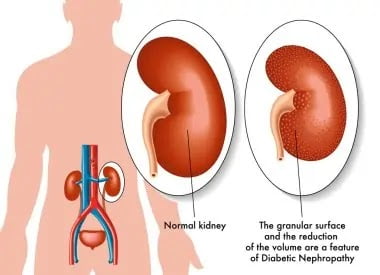
Introduction
We all know vitamins are essential for good health. One vitamin that plays a crucial role in maintaining our well-being is Vitamin D. Often referred to as the “sunshine vitamin,” it is renowned for its numerous health benefits. In this comprehensive guide, we will explore the wonders of Vitamin D and how it positively impacts women’s and men’s health.
What is Vitamin D?
Before we dive into the benefits, let’s first understand what Vitamin D is. Vitamin D is a fat-soluble vitamin that acts more like a hormone than a traditional vitamin. It is produced in the body when our skin is exposed to sunlight and can also be obtained from certain food sources and supplements.
The Essential Sunshine Vitamin
Known as the “sunshine vitamin,” Vitamin D plays a vital role in maintaining our health. It is produced naturally by our bodies when our skin is exposed to sunlight. However, due to various factors such as limited sun exposure, geographic location, and lifestyle choices, many individuals may experience Vitamin D deficiency.
Promoting Stronger Bones and Teeth
One of the significant benefits of Vitamin D is its role in supporting bone health. It helps our bodies absorb calcium and phosphorus, essential minerals needed for strong bones and teeth. Without sufficient levels of Vitamin D, our bones become weak and prone to conditions like osteoporosis and rickets. Ensuring an adequate intake of Vitamin D can help prevent these bone-related issues.
Boosting Immune Function
Supporting a robust immune system is crucial, especially in times when protecting our health is of utmost importance. Studies have associated Vitamin D with improved immune function. It helps regulate our immune response, reducing the risk of infections, including respiratory tract infections like the common cold and flu.
Preventing Chronic Diseases
Emerging research suggests that maintaining optimal Vitamin D levels may have a protective effect against chronic diseases. Several studies have found a potential link between Vitamin D deficiency and conditions such as cardiovascular disease, diabetes, hypertension, and even certain types of cancer. While more research is needed to establish definitive conclusions, ensuring adequate Vitamin D intake might play a role in preventing these illnesses.
Mood and Mental Health
Vitamin D is believed to influence our mood and mental well-being. Low levels of Vitamin D have been associated with an increased risk of mood disorders, including depression and seasonal affective disorder (SAD). Sunlight exposure, which helps our bodies produce Vitamin D, is also known to boost serotonin levels, a neurotransmitter associated with happiness and mood regulation.
Therefore, maintaining sufficient levels of Vitamin D may contribute to an improved sense of well-being.
Common Food Sources and Supplements
While sunlight exposure remains the primary source of Vitamin D, certain foods can also contribute to your intake. We recommend
incorporating fatty fish like salmon or mackerel, egg yolks, and fortified products such as milk or cereals into your diet. However, it can be challenging to obtain optimal Vitamin D levels through diet alone, especially for those who follow a strict vegetarian or vegan diet.
That is where supplements come into play. Vitamin D supplements are widely available and can help bridge the gap between your dietary intake and optimal levels. We advise consulting with a healthcare professional to determine the right dosage and form of supplements suitable for your individual needs.
Determining Your Vitamin D Levels
If you suspect a Vitamin D deficiency, it is essential to consult with your doctor. They can order a blood test to measure your Vitamin D levels accurately. Based on the results, they can recommend the appropriate steps to ensure your nutritional needs are met.
Safe Sun Exposure
While it is essential to obtain Vitamin D from sunlight, it is equally crucial to practice safe sun exposure. Overexposure to harmful ultraviolet (UV) rays can increase the risk of skin damage and skin cancer. We recommend spending around 15 to 20 minutes outdoors in the sun before applying sunscreen or seeking shade during peak hours.
Conclusion
Vitamin D plays a significant role in promoting optimal health for both women and men. From supporting bone strength to boosting the immune system, this vital nutrient offers a multitude of benefits. While sunlight remains the primary source, incorporating Vitamin D-rich foods into your diet and considering supplements can help you maintain optimal levels. Remember to consult with your healthcare professional to determine the most suitable approach for your unique needs.
FAQs
1. Can Vitamin D be obtained solely from sunlight exposure?
Yes, our bodies can naturally synthesize Vitamin D through sun exposure. However, it may be challenging to obtain enough Vitamin D solely through sunlight, especially during winter or in regions with limited sun exposure.
2. Can I take Vitamin D supplements without a doctor’s recommendation?
While over-the-counter Vitamin D supplements are generally safe, it is advisable to consult with a healthcare professional to determine the appropriate dosage for your specific needs.
3. Can I obtain Vitamin D from plant-based food sources?
Vitamin D is primarily found in animal-based food sources like fatty fish, egg yolks, and fortified dairy products. There are limited plant-based sources of Vitamin D, such as mushrooms exposed to UV light or fortified plant-based milk alternatives.
4. Are there any specific populations at a higher risk of Vitamin D deficiency?
Certain populations, such as older adults, individuals with darker skin tones, people with limited sun exposure, and those with malabsorption issues, are at a higher risk of developing Vitamin D deficiency.
5. Can Vitamin D supplements interact with other medications?
Vitamin D supplements might interact with certain medications, including corticosteroids, weight-loss drugs, and anticonvulsants. It is essential to inform your healthcare provider about any supplements you are taking to avoid potential interactions.
Note: The information provided in this article is not intended as medical advice. It is always recommended to consult with a qualified healthcare professional for personalized recommendations on Vitamin D intake and to address any specific health concerns.



